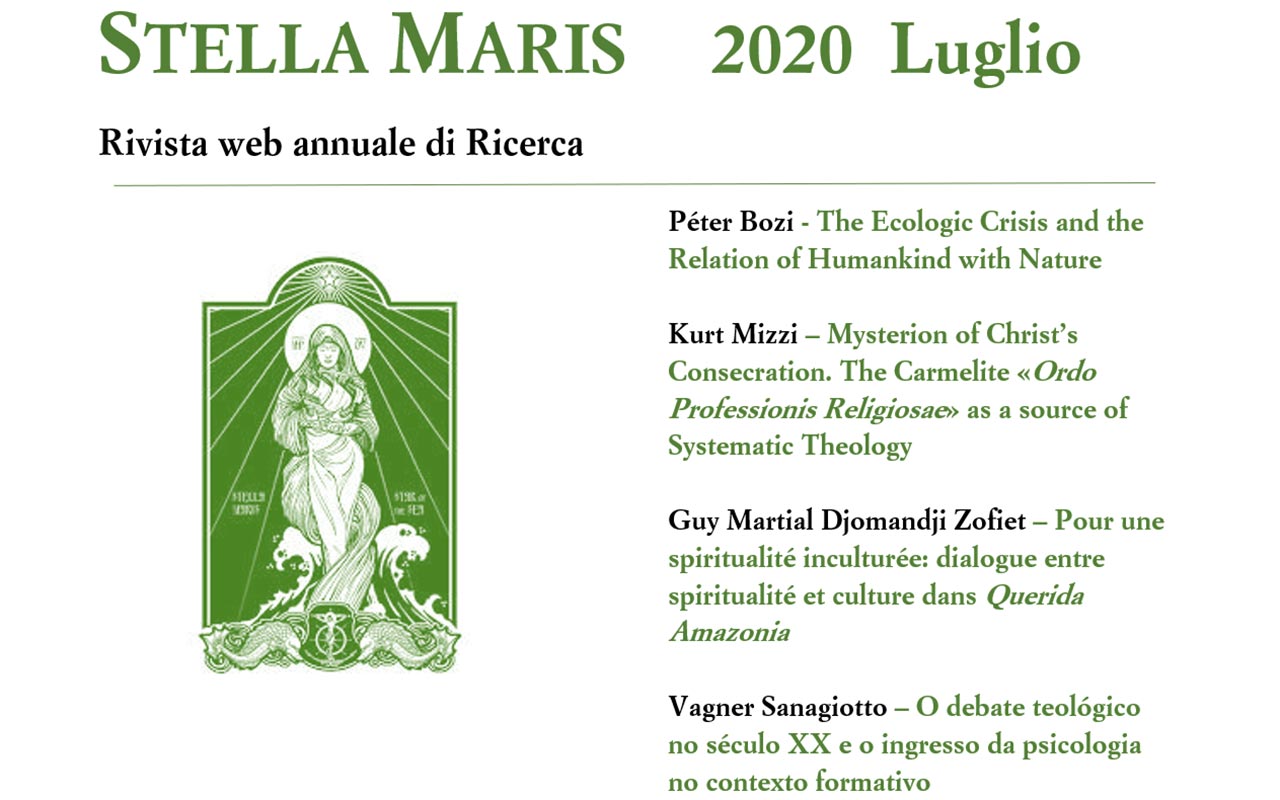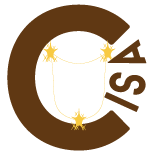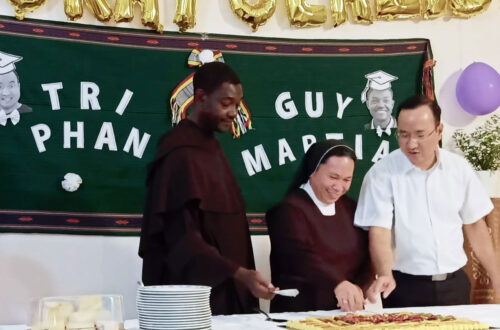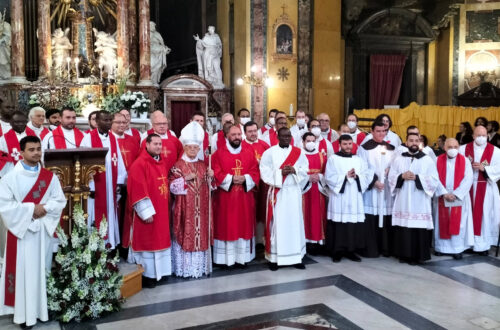Stella Maris (Luglio 2020)

We are beginning our journey through the unlimited ocean of human thought, which is the result of intellectual reflection, prayer and openness to the action of the divine Spirit. We hope this journey can continue and make us grow; maybe one day we can see that the journal, now at its beginning, was the germ of the first attempts of some who, by then, will have become the recognized authorities in theology or in other fields.
This number opens with an article by our Hungarian brother, Péter Bozi, who belongs to the Spanish province of Arago – Castilla – Valencia. Péter is still doing the first cycle and is a specialist in the field of music, more precisely in the field of song. In his article of he addressed the very current theme that is our relationship with nature and presents what the last four popes, Paul VI, John Paul II, Benedict XVI and Francis teach us on ecology and on our commitment in this regard.
Kurt Mizzi, the author of the second article, belongs to the Maltese Province and is finishing his licentiate in dogmatic theology at the Gregorian University. In this issue he offers us a profound reflection on religious consecration, analysing our Carmelite rite of the profession – the Ordo Professionis Religiosae O. Carm., published in 1974.
Between 6 and 27 October 2019, the Special Synod dedicated to the situation in the Amazonia took place here in Rome and it concluded with a text called Amazonia: New paths for the Church and for an Integral Ecology. The assembly inspired Pope Francis to write the post-synodal apostolic exhortation, Querida Amazonia, published February 2, 2020. Our Cameroon brother, Guy Martial Djomandji Zofiet, who is writing his doctoral thesis on John of St. Samson at the Gregorian University, will guide us through the spiritual dimension of this exhortation.
Good news is not always well-received and accepted from the beginning. We find a significant example in the person of Jesus who did not follow all the cultural and social norms of his time. Apparently, a similar story can be found in relation to the use of psychology in formation of the Consecrated and the Presbyteral Life, which also involves the relationship between psychology and theology. In his article, Vagner Sanagiotto, who is writing his doctoral thesis in psychology at the Salesian University, presents the story of what happened when psychology begun to be used in the formative field.
It is not easy to form a priest or a religious. Equally, it is not easy to educate children and it is not easy to be a mother or a father. Sometimes, our internal impulse to violence can be so strong that it is impossible to think of the consequences of what one is doing. As a result, children can suffer and this happens more often than we might imagine. If you want to know who reaches this level, why it happens and what parents can do to prevent it happening, please read the article of our brother, Aureliano Pacciolina, Professor of Psychology, who has significant experience with both clinical cases, and with therapeutic accompaniment, and who is, also, an expert witness at various courts, including the Ecclesiastical one.
This issue of the journal ends with two reviews: the first by Aureliano Pacciolina, and the second by Vagner Sanagiotto. We wish you good reading and we wait for your reactions, suggestions and proposals, which can also help us to improve our journal.
Content of Stella Maris (Luglio 2020)
Kuba Walczak O.Carm
Editoriale
Péter Bozi O.Carm
The Ecologic Crisis and the Relation of Humankind with Nature
Kurt Mizzi O.Carm
Mysterion of Christ’s Consecration. The Carmelite «Ordo Professionis Religiosae» as a source of Systematic Theology
Guy Martial Djomandji Zofiet O.Carm
Pour une spiritualité inculturée: dialogue entre spiritualité et culture dans Querida Amazonia
Vagner Sanagiotto O.Carm
O debate teológico no século XX e o ingresso da psicologia no contexto formativo
Aureliano Pacciolla O.Carm
Genitorialità in crisi
Recensioni
(Read the Magazine in PDF below )



